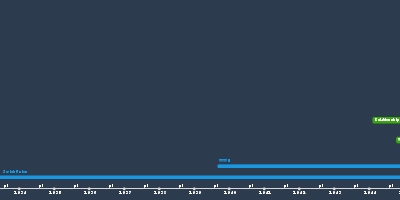Afghan-Soviet War (24 dic 1979 año – 19 feb 1989 año)
Descripción:
The Afghan-Soviet War, also known as the Soviet invasion of Afghanistan, was a significant conflict that took place from 1979 to 1989. It was a result of political instability in Afghanistan and the Soviet Union's desire to maintain influence in the region.In 1978, a communist-leaning government, known as the People's Democratic Party of Afghanistan (PDPA), seized power in a coup. This led to opposition and resistance from various groups, including traditional tribal leaders, religious conservatives, and guerrilla fighters known as the Mujahideen.
Concerned about the spread of anti-communist sentiment and the potential destabilization of neighboring Soviet republics, the Soviet Union intervened militarily in December 1979. They deployed a large number of troops to support the PDPA government and suppress the insurgency.
The Soviet intervention faced significant resistance from the Mujahideen, who received support from various countries, including the United States, Saudi Arabia, and Pakistan. The Mujahideen employed guerrilla warfare tactics and received weapons and training from their foreign backers.
The conflict quickly turned into a protracted and costly war for the Soviet Union. The Mujahideen capitalized on their knowledge of the rugged Afghan terrain and the support they received from local populations. They engaged in hit-and-run attacks, ambushes, and sabotage, making it difficult for the Soviet forces to maintain control.
As the war continued, the Soviet Union faced mounting casualties and growing opposition at home. The conflict also drew international condemnation due to allegations of human rights abuses and the displacement of Afghan civilians.
In 1985, Mikhail Gorbachev became the leader of the Soviet Union and initiated a policy of reform and openness known as glasnost and perestroika. He sought to end the costly and unpopular war in Afghanistan and began withdrawing Soviet troops in 1988.
The Soviet Union completed its withdrawal in February 1989, leaving behind a politically unstable Afghanistan. The PDPA government eventually collapsed in 1992, leading to a power vacuum and a period of civil war.
The Afghan-Soviet War had long-lasting consequences. It contributed to the rise of militant Islamist groups, including the Taliban, who later took control of Afghanistan. The conflict also fueled regional tensions and influenced subsequent international interventions in Afghanistan.
Furthermore, the war had an impact on the Soviet Union itself. It exposed the limitations of Soviet military power and contributed to a sense of disillusionment among the Soviet population. The financial and human costs of the war, coupled with other internal challenges, hastened the decline of the Soviet Union, which eventually dissolved in 1991.
Añadido al timeline:
fecha:
24 dic 1979 año
19 feb 1989 año
~ 9 years
